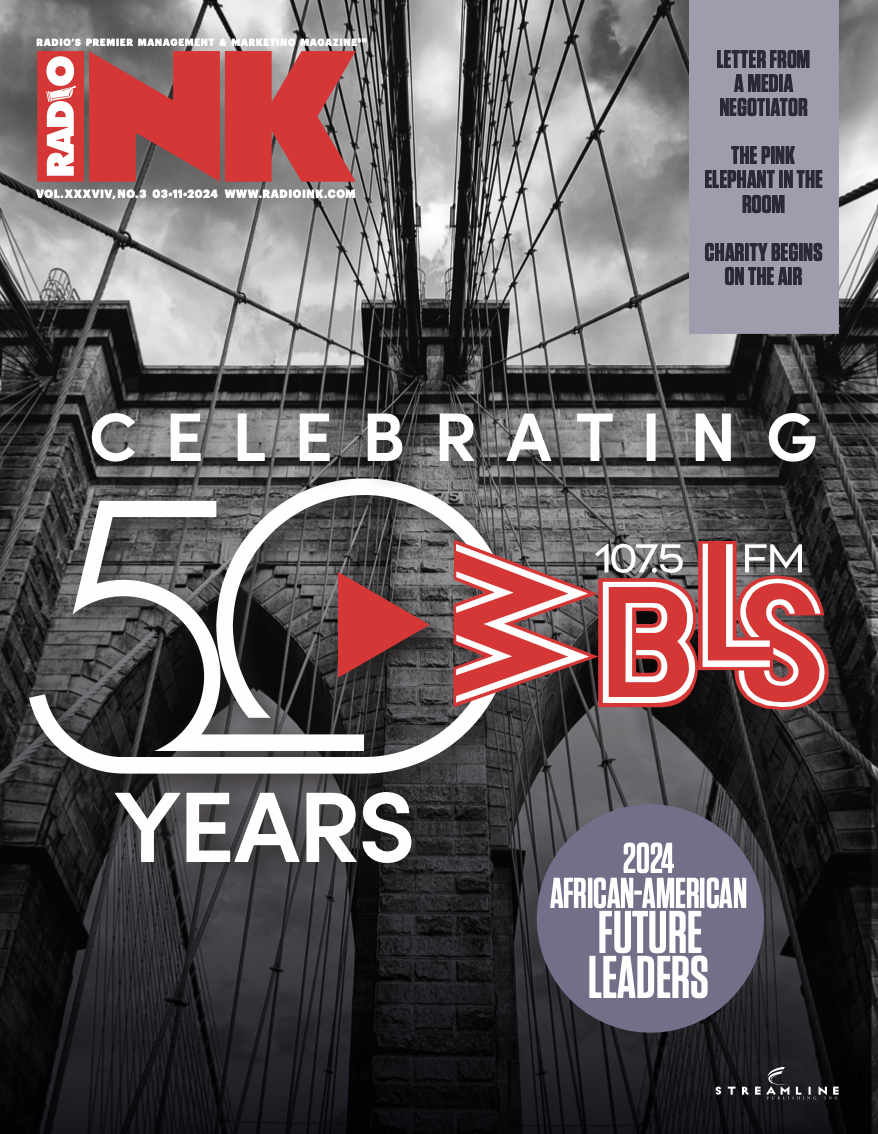
(By Mike McVay) Those of us who have been on the air know that there is nothing scarier than noticing that your microphone was left on … when it should be off. That’s only one of the many mistakes that I’ve made during my career as an air-talent and as a Program Director.
Through the research that I’ve seen, listening to thousands of hours of audio, having spent hundreds of hours coaching talent, and through my own experiences, I’ve seen a pattern of mistakes that many on-air performers make. Not the majority, but many. Mistakes that I doubt that they would make if made aware of these errors in their actions or performance.
- Failure to Identify the Station/Brand – We know that in Diary Markets, where listeners have to recall what station they listened to and write it down, reminding the audience to what station they’re listening is very important. In PPM Markets it is important to remind the audience who they are listening, and where you are on the dial or who to ask for on a Smart Speaker, is important so the audience knows how and where to return to the station.
- Failure to sell a benefit to listen – It is easy to understand that a talent is focused more on their show and its’ content, than the benefits of the station. The two should not be at cross purposes. Explain to the listener why listening to your show is a benefit to them, and why listening to the station is a benefit to them. Of course, this only works if the Program Director can explain to you that benefit, so you can believably explain it to the audience.
- Teasing without an incentive to listen – All too often an air-talent will promote what’s upcoming by reading something that’s akin to a grocery list. Think about “Why” someone would want to stick around for what’s next, and then write a tease that tickles their interest and creates intrigue, so that they remain engaged.
- Narcissism – Some talent believes that what’s important to them, is important to their audience, and their show becomes the ME Show instead of the YOU Show. Those stories that you share about yourself should be relatable to the listener, and should be entertaining to the audience.
- Knowing your target – Who does your station talk to and who does your show want as listeners? Learn as much as you can about the target. Where do they live, where to they work, what’s the lifestyle of the majority of your audience, what is the average age and the gender lean of your listeners.
- Living in the Listeners World – In my career I have talked with talent who proudly told me that they don’t watch TV or they aren’t on Social Media. They may have no activity that their audience would find to be relatable to them. They may even look down their nose at their audience and its life. You need to live in the listeners world. Do what they do, go where they go, watch what they watch, listen to what they listen to. Fakers are found out quickly.
- Being Prepared – It doesn’t matter how many Billboards your station has promoting your show, how heavy of a Television schedule you’re airing, how involved you are in Social Media, and how much money the stations gives away on the air. No amount of marketing and no prize is big enough to provide a long term coverup for your lack of preparedness. If you’re not ready when you turn on the microphone, you’re turning off your audience. I’ve always felt that every hour on-air that I was to perform, required an equal amount of time off air preparing.
- A belief that the station goes off-the-air when they go off-the-air – You’ve heard these shows before. The On-Air personality never promotes the talent that’s on-air after them. These are the shows that say “Goodbye” and you might as well turnoff the station after their show. I’ve always encouraged personalities to think of the station as one long show with multiple acts. Their show is one of the acts in the continuum of multiple shows. By the way … it’s not a “shift.” It’s a “Show.”
- Failure to Realize that they are part of a Team – During my time as a Program Director, I encountered several superstar talents who initially refused to participate in meetings that included the rest of the on-air talent and the programming staff. Their reason likely had more to do with the time of day that these meetings occurred, than their dislike foe the others, and as such I changed Air-Staff dinner meetings into lunches. The superstars on your staff should attend team meetings. To do otherwise sends a bad message to your coworkers.
- Forgetting that we are in the business of Entertainment – Most talent that I have encountered never forget that we’re in the Entertainment business. Unfortunately, there are a minority of personalities who grumble about the behind-the-scenes work that goes into making a station and a show successful. There are those that want to do the bare minimum and get by with doing as little as possible. There are talents that begin looking for their next job the minute they get a new job. Realize that in this era, when many shows are imported using Voice Tracked Talent, or air syndicated/network programming, being on-the-air as a personality is a privilege that should not be taken lightly.
Mike McVay is President of McVay Media and can be reached at [email protected]






These should be renamed “The Ten Commandments”. We are talking the most basic rules of radio. Every break should contain these elements… Every. Single. Break. The one I feel is most important is “Forgetting that we are in the business of entertainment”. Look at the big talent that almost “was”. You can mark their downfall the day they forgot that rule and bought into their own importance. They ceased to be funny or compelling; they created content for themselves and forgot about the listeners. The late, great Rush Limbaugh was a rarity because this was some thing he never did. He followed the basic rules, he came across as humble and self deprecating and he created content solely for his listeners. He was an “SOB” off the air: this from his “ North Carolina mistress” who is a friend of mine and was his childhood friend and one of his main sources of prep. But all that mattered was what transpired on-air: he followed the rules and he entertained. This he did to an extent I wonder if we’ll ever see again. Thank you, Mike. It’s nice to see someone reminding us of the importance-and absolute necessity-of using these building blocks to create what is hopefully a successful show.
In my five and a half decades in radio as both talent and management, mostly in New York, formats and technology have evolved significantly. But one thing that never changes is the need for any radio personality to have the ability to consistently communicate effectively. In other words make everything you do and say relevant. Everything said needs to relate to your audience. That entails every aspect of your presentation whether it be content or style. And keep in mind regardless of demographic differences you need to know what your listeners have in common that makes them, or why would they want to, listen to you on your radio station. Much of Mike’s list hit some of the ways to accomplish this. Good points.
Back in the day, “tight board, third phone” was all you needed to move up in radio. Not anymore. Before someone starts their career in broadcasting they should take a test on these rules. If they get even ONE wrong-they should be forced to go home and study. Today’s programmers (brand managers) should be charged with enforcing these common sense rules to enhance their “brand”. It’s amazing that some don’t!!
On point. We are the performers on the show and we should never forget that. What do you do if you get bored watching or listening to a show? Turn it off. It’s what I do. Great advice, Mike. Thanks for the reminders.
Well said…I learned early on there is no “I” in “Team”. And I still believe in the power of personality radio. You have to be relatable, but you also must be a “character” as well. So play the character you have decided to play.
It’s SHOWBIZ~! However, we must relate and see the world thru the prism of the Target Audience, and ‘leave them hanging’ via tantalizing-teases, etc, et al..:-)…OH, and have FUN~! Great Input Mike, and we need to remind ourselves, ‘every quarter-hour’! Cheers and Thanks for this!
Striking to me how these are mostly as applicable to daily life in general as they are on air.